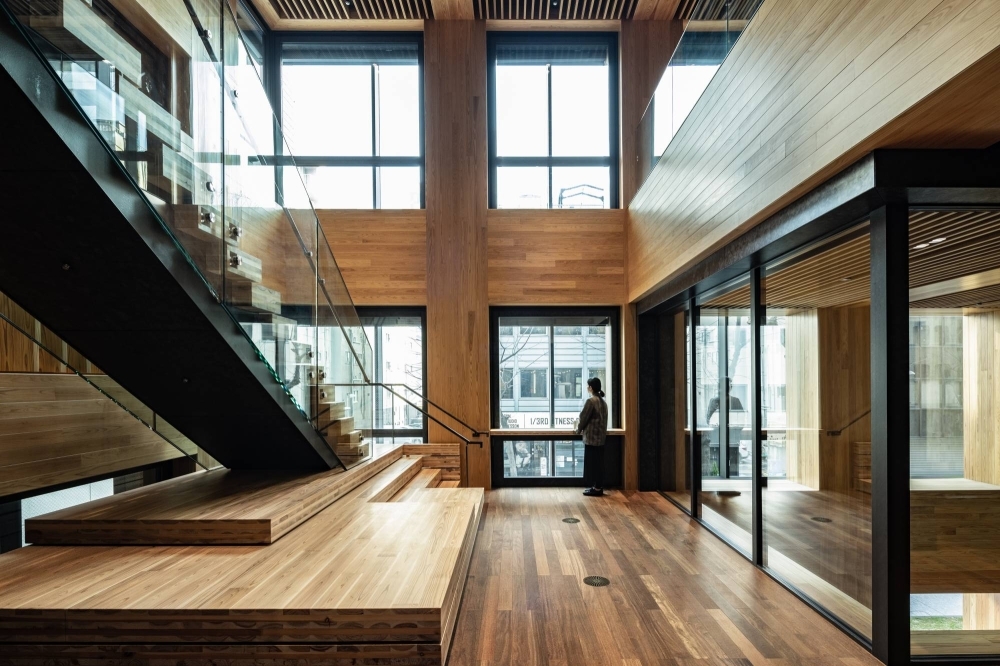Less than an hour by train from central Tokyo, on a narrow tree-lined street hemmed with convenience stores, a ramen shop and a hostess club, stands a building unlike any other in Japan. The structure is a fully wooden-framed, fire-resistant high-rise.
Port Plus is a training and education facility in Yokohama built by and for general contractor Obayashi, a storied Japanese builder that traces its roots back to 1892. The firm has constructed some of the country’s most iconic structures, including Tokyo Station, dating to 1914, and the Kenzo Tange-designed Yoyogi National Stadium 2nd Gymnasium, completed in the 1960s.
But Port Plus — which was finished last year and is composed mainly of 540 wooden rigid cross-joints that are 2.8 meters wide and 4 meters tall — may be its most ambitious. The structure offers a pivot away from the carbon-intensive building materials like steel and cement that dominated Japan’s postwar landscape and offers a new path for modern mass-timber construction in a country where, for centuries, wood has played a central role in temples, homes and workspaces.



